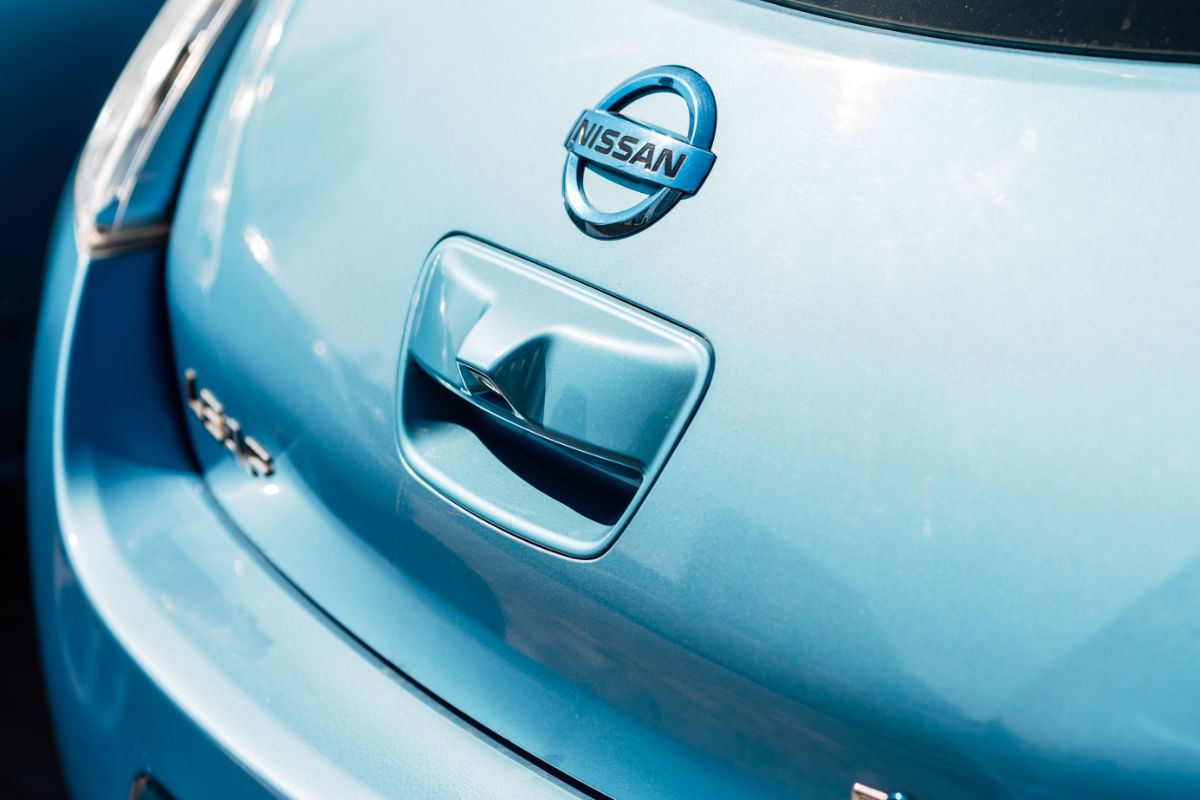Battery degradation is among the most common problems of a Nissan LEAF, especially for its earlier models. So you need to get yourself prepared for a Nissan LEAF battery replacement, including learning about its system and cost.
This guide discusses the Nissan LEAF battery system, size range, price range, durability, and swapping process. You will also learn how to maintain the li-ion (lithium-ion) battery to ensure its high durability.
The Nissan LEAF’s recent models can cover about 226 miles (364km) on a full charge because of the introduction of larger battery packs in those new models, which come with some enhancements based on the older battery versions.
Read further to learn more about this vehicle’s battery system.
Nissan LEAF Battery System
The Nissan LEAF is an eco-friendly BEV (battery electric vehicle) that runs on electricity that is stored in the Li-ion battery. Your car won’t start if the battery isn’t charged. And you will need to plug the vehicle into an external electrical power source to charge the Li-ion battery.
Another way to get a recharge is through regenerative braking. Specifically, the car’s system converts mechanical energy into electrical energy while driving downhill or slowing down (deceleration). The electricity gets stored in the Li-ion battery. Your vehicle’s range is extended this way.
Nissan LEAFs utilize two types of batteries which are the high-voltage Li-ion battery and the 12-volt battery. The Li-ion battery powers the traction (electric) motor that makes the car move.
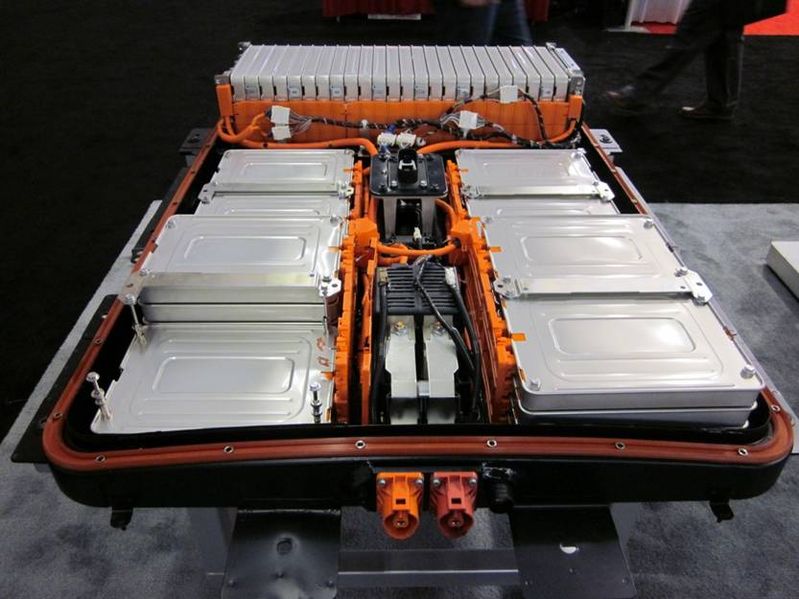
On the other hand, the 12-volt battery powers the car’s systems and features, including the windshield wipers, SRS (supplemental restraint system), audio system, and headlights. It is the same as the one used in gasoline engines, and it gets its charge from the Li-ion battery.
Nissan has been developing lithium-ion batteries for several years and has come up with upgrades in terms of performance and reliability. The company’s Li-ion battery tech utilizes materials that allow lithium-ions to be stored at a higher density. They include cells with laminated structures and a layer-structured Ni-Co-Mn positive electrode material.
Note: A Li-ion battery possesses more density than a nickel-metal hydride battery and a lead-acid battery.
The battery cells possess simple structures that save space and reduce the battery pack’s total size. They exhibit high performance when it comes to cooling.
Nonetheless, battery degradation is still one of the most common problems of Nissan LEAFs.
Nissan LEAF Battery Sizes
The table below shows the Nissan LEAF battery sizes from the most recent model years to the oldest (2011-2022).
| Model Year | Type & Size |
| 2019 – 2022 | 40-62 kWh 360 V Li-ion |
| 2018 | 40 kWh 360 V Li-ion |
| 2017 | 30 kWh 360 V Li-ion |
| 2016 | 24-30 kWh 360 V Li-ion |
| 2015 | 24 kWh 360 V Li-ion |
| 2013-2014 | 24 kWh 360 V Li-ion |
| 2011-2012 | 24 kWh 360 V Li-ion |
How Long Do LEAF Batteries Last?
The table below shows the Nissan LEAF battery travel ranges from the most recent model years to the oldest (2011-2022).
| Model Year | Travel Range |
| 2019 – 2022 | 150-226 miles |
| 2018 | 151 miles |
| 2017 | 107 miles |
| 2016 | 84-107 miles |
| 2015 | 84 miles |
| 2013-2014 | 75 miles |
| 2011-2012 | 73 miles |
The above table shows that the 2011-2012 model years of the first generation batteries allowed a maximum highway travel limit of 73 miles before needing a recharge. The max mileage kept increasing over the years until 2019, when it became 150-226 miles which is three times the limit of the first model year. That has been the range to date (2022).
You should be looking at 100,000-150,000 miles for the first-generation models and 200,000-300,000 miles for the second-generation models in terms of total mileage. The lifespan of first-generation models (2011-2016) can reach 8-10 years if you take care of it well. Recent model-year models are highly durable.
As stated in the table presented earlier, a Nissan LEAF battery’s travel range depends on its model year. And factors such as your location, how you use the EV, where you park it, and the battery’s age will affect its lifespan. Your vehicle’s battery will wear down in a shorter time if it is used in an area that experiences extreme heat periods annually. The same goes for when you charge the battery more than once daily.
Owners of recent model-year Nissan LEAF vehicles can worry less about the above factors because the battery is built for higher endurance. However, the mileage will start dropping gradually after some time. Americans drive far less daily on average than the max travel distance covered by a Nissan LEAF’s full battery charge. So your Li-ion battery may not experience that much degradation if you stay in the US.
Nissan Replacement Process
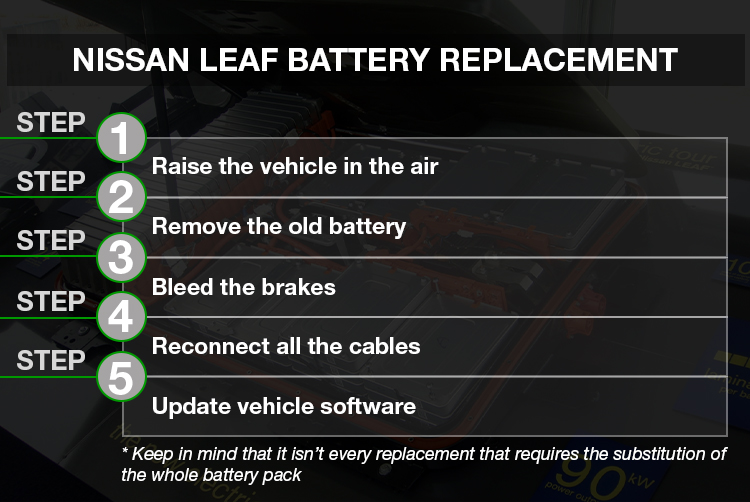
Every lithium-ion battery experiences degradation as time passes. So the need for a replacement will become inevitable after many years of usage. A Nissan LEAF battery replacement process is as complicated as swapping out an EV’s engine. The procedure requires proper equipment to handle the battery’s weight and protect the technician against electric shocks.
The experts will raise the vehicle in the air, so the battery’s location can be reached. They will remove the old battery and insert the new ones while reconnecting all the relevant cables. A vehicle software update is usually performed to enable the vehicle to recognize the new battery.
Such swaps typically take less than a day for an experienced mechanic to complete. But you may have to wait for a period if a part is ordered. Keep in mind that it isn’t every replacement that requires the substitution of the whole battery pack. It may just be a faulty module in the battery that needs to be swapped out. Replacing only the defective cells or components is a money-saving opportunity.
Make an appointment with your local dealer or mechanic for a professional replacement. It is more expensive to perform the swap at a dealership than at an auto repair shop. So, good for you if the battery’s warranty hasn’t expired. Watch this video for a walkthrough on replacing Nissan LEAF batteries.
Nissan LEAF Battery Cost
The cost of replacing a Nissan LEAF battery is given as follows depending on the battery type:
62 kWh: $12,000-$15,000
40 kWh: $8,000-$12,000
30 kWh: $5,000-$8,000
24 kWh: $4,000-$6,500
Battery Warranty
2018-2022
Li-ion Battery Coverage: 100,000 miles/8 years
Li-ion Battery Capacity Coverage: 100,000 miles/8 years
2011-2017
Li-ion Battery Coverage: 100,000 miles/8 years
Li-ion Battery Capacity Coverage: 60,000 miles/5 years
Remember that I mentioned the possibility of a partial battery replacement that will only involve the swapping out of one malfunctioning/faulty component or more. A Nissan LEAF owner may also want to upgrade from an old battery model to the latest one during a full replacement. You may not be able to perform a refurbishment or swap at the time it is needed because of the shortage or unavailability of the necessary parts in your location.
How to Maintain the Li-ion Battery Life
It is a normal occurrence for the mileage produced by a Li-ion battery’s single charge to reduce as the unit ages. But the decline can be sped up by a fault. Adopt the following habits for battery charge and lifespan maximization:
Proper Charging Manners
Avoid making use of the charging timer constantly while the charge connector is linked to your Nissan after a full charge has been achieved. The battery may discharge if you do so. Use the charge gauge to monitor the power levels.
You should let the vehicle (especially its battery) cool down after use before charging. A flat battery or one with a “zero” charge must not be left uncharged for more than two weeks. Utilize the trickle or normal charging modes more, and try not to opt for the quick-charge and public fast charge methods regularly.
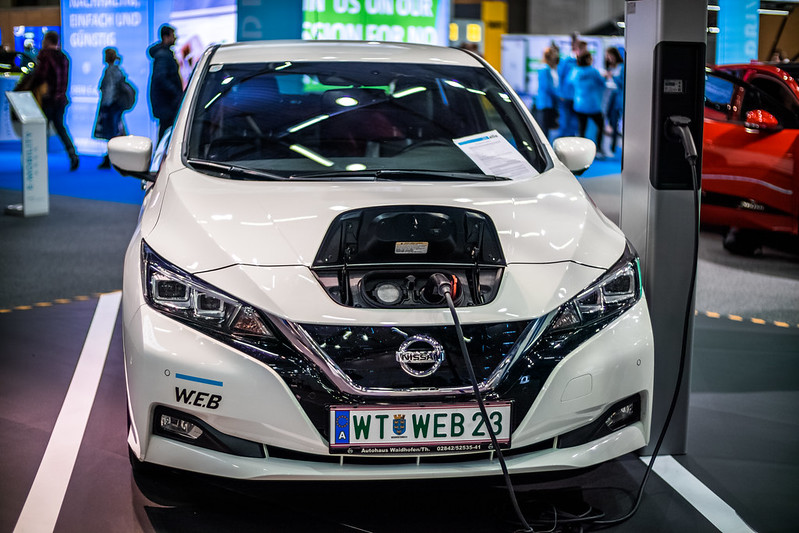
Parking/Storing in the Right Places
Don’t park your Nissan LEAF where it can be exposed to direct sunlight or where there is a very high temperature for too long. The vehicle shouldn’t also be stored in extremely low temperatures for more than a week. The ambient temperature has to be optimal—a cool location without proximity to heat sources.
Monitoring Battery Temperature During Trips
Check the battery’s temperature after a long period of driving so you can track whether it is too hot or at an optimal level. Avoid driving further if the temperature is too high. Making two or more stops in a day to “quick-charge” the battery can cause it to experience extreme heat.
Calculated Use of the Vehicle
Remember to use ECO Mode and B Mode to reduce engine output and save power. You will be able to get extra mileage out of a single charge because of the increase in regenerative braking. Practice moderate driving as well.
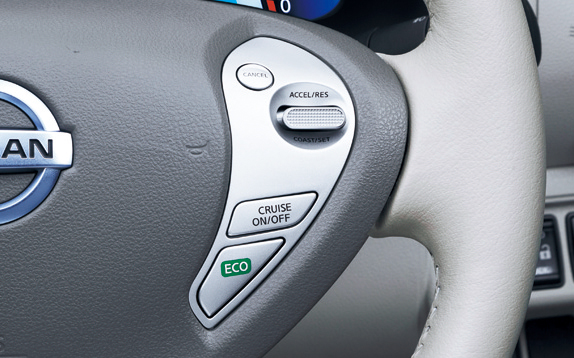
Keeping Track of EV Battery Usage Reports
Get an EV Battery Usage Report prepared and review it with an expert regularly. This helps you see ways in which you can maximize the battery’s life. The report will be needed when you want to make a battery warranty claim. Read the warranty information booklet to learn more about this.
Taking Advantage of the Li-ion Battery Capacity Warranty Coverage
The Li-ion battery has warranty coverage for capacity loss, apart from coverage for defects in workmanship or materials. You should take advantage of this warranty because it includes any fixes required to return the battery capacity to normal. Read your EV’s warranty booklet for more details on this.
Conclusion
Now you know all there is to learn about a Nissan LEAF battery replacement, especially the fact that you have to leave the process to an expert. You may get the battery replaced, but remember to start practicing the right maintenance habits from the very first day. And hopefully, the warranties may cover the repairs or replacement needed and save you money or prolong your battery’s life.
